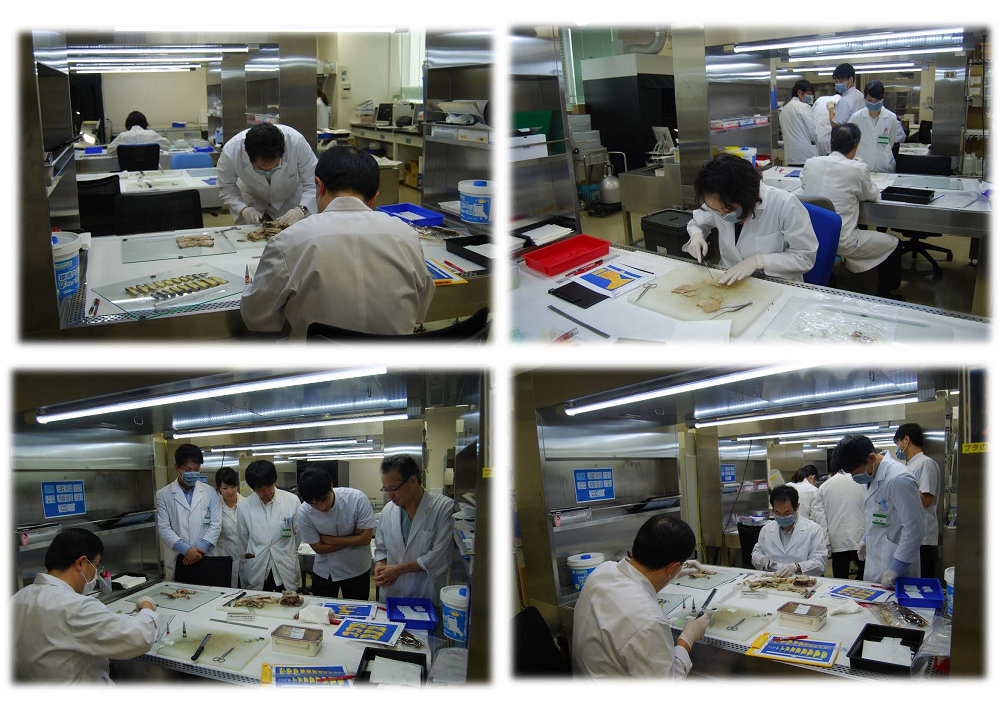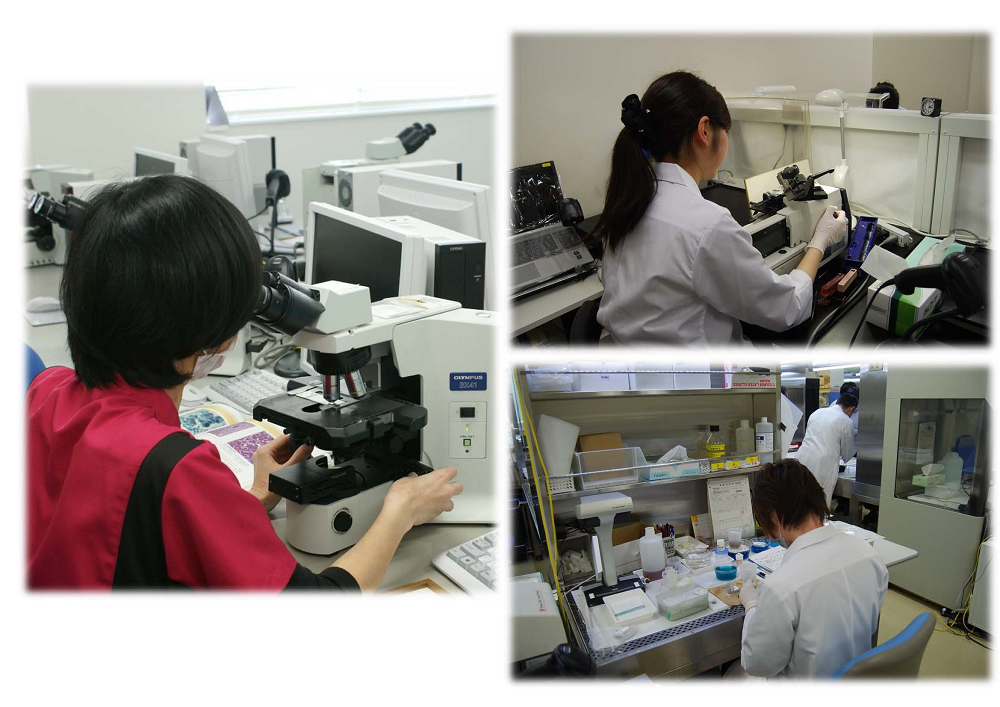【Major Papers of the Laboratory】
・Discordant HER2 status between primary breast carcinoma and recurrent/metastatic tumors using fluorescence in situ hybridization on cytological samples., Jpn J Clin Oncol,, 43(1), 55-62, 2013
・Comparison of evaluations of hormone receptors in breast carcinoma by image-analysis using three automated immunohistochemical stainings., Experimental and Therapeutic Medicine, 1(6), 927-932, 2010
・Utility of cytopathological specimens and an automated image analysis for the evaluation of HER2 status and intratumor heterogeneity in breast carcinoma, PATHOLOGY RESEARCH AND PRACTICE, 212(12), 1126-1132, 2016
【Education】
The mission of Anatomic Pathology is to provide the accurate and high-quality pathological diagnosis as soon as possible, research about up-to-date matters, and sophisticated education for various students, but our patient care activities are always our first priority.
A pathological diagnosis is done by the pathologists on macroscopic, microscopic, immunohistochemical and electron-microscopic examination of tissues sampled at surgery or biopsy to assess the staging of cancer or pathophysiology of disease.
Cytological diagnosis is done by both cytologists and pathologists. Autopsy is performed to elucidate the pathophysiology of the dead patient and verify the medicine treated resulting in improvement of the quality of medical care.
【Research】
At our department, it is now possible to explore the phenotype and genotype of human tumors to increase the accuracy and reproducibility of pathologic diagnosis. Small numbers of malignant cells can be detected in cytological preparations or biopsies through the clinically validated use of molecular markers. In addition to establishing primary diagnoses, genotyping can effectively classify breast cancer subtypes. Genetic instability of solid tumors has also been found useful in clinical applications. Characteristic mutations can be used as markers for the detection of very small numbers of tumor cells (endoscopic biopsies or fine needle aspirates) to increase the sensitivity and accuracy of pathologic diagnosis. In specific instances (e.g. pancreatic cancer, biliary cancer, breast cancer, endometrial cancer and lung cancer), specific gene alterations provide a basis for molecular diagnosis and subclassification.

 Home
Home




